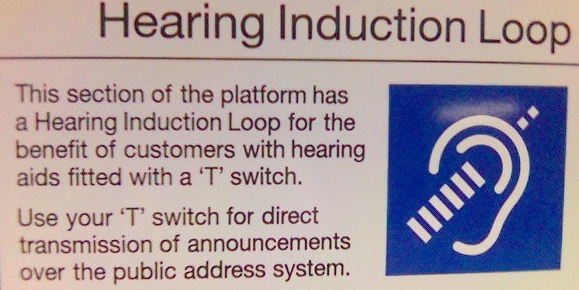The lack of help available to the hard of hearing in Dundee shops has fooled many into believing their hearing aids are at fault.
A survey by the Royal National Institute for Deaf People (RNID) has found that more than seven in 10 Dundee businesses were inaccessible to customers with hearing loss.
Now the charity is urging shops and services in the city to improve access for hearing aid users.
Out of 114 businesses surveyed, just 40 had operational induction loops, while of the remainder, 90 had no induction loop fitted, two had systems that were not in working order and staff in 12 premises could not say if the a loop existed.
Most of the staff spoken to in shops said they had not received basic deaf awareness training, but indicated that they would like to know more.
The RNID warns that businesses without fully operational induction loops are not only missing out on potential customers but could be leaving themselves open to legal action under disability equality legislation.
“Shops in Dundee have a lot to offer,” said RNID Scotland director Delia Henry. “Many businesses will be disappointed to learn that by not providing a fully working induction loop, they are failing people who are deaf or hard of hearing.
“It’s encouraging that staff in shops expressed an interest in deaf awareness training, so we’ll be giving them the chance to work with us and remove the unnecessary communication barriers deterring people from buying their products or using their services.”Frustrating experienceKerry Maclean, a hearing aid wearer from Dundee, said, “When loop systems are available and working properly, you can hear customer service staff much more clearly, but when they don’t, it can be extremely embarrassing and frustrating.”
Users have to move a switch on their hearing aid to take advantage of an induction loop and that can cause problems if a system is not operating properly.
Suzanne Swinton runs the RNID Hear To Help service, which provides advice and hearing aid maintenance across Tayside.
“We meet a lot of service users and a lot have said that if they go into a shop without a working induction loop it is embarrassing for them to say anything about it so they would just go out,” she said.
People who have switched their hearing aids to the loop system to no effect often don’t realise the problem does not lie with their own aid and then turn to one of the service’s hearing aid clinics seeking help for a non-existent fault with their equipment.
“We also have people coming in all the time saying how useful the loops are where they are installed in places like banks, Post Offices and theatres,” Ms Swinton added. “It really helps them to have a wee bit more independence and do things for themselves. It’s a really good thing when it does work.”
Image used under Creative Commons licence courtesy of Flickr user avlxyz.
